142 items found: Search results for "hal" in all categories x


March 5, 2024 | Blog, Culture, News
Learn more about our efforts and our progress towards becoming an environmentally friendly company for the Mayor’s Business Climate Challenge (BCC) in 2023 in this final update.


September 19, 2023 | Blog, Culture, News
In this blog we share the latest developments in our efforts to create a more sustainable business as part of The 2023 Mayor’s Business Climate Challenge.


January 20, 2023 | Blog, Culture, News
OpenCredo is thrilled to be a part of the 2022/2023 Mayor’s Business Climate Challenge (BCC). Read this blog to learn more about our initiatives to lower carbon emissions as part of the voluntary energy efficiency programme!


November 13, 2019 | Software Consultancy
Pioneering and pushing technology boundaries – pretty much a given nowadays for the software-driven startup. Here are some insights we’ve observed working with a number of venture capital (VC) companies who have managed to navigate the choppy waters and successfully grow their business including winning further investment along the way.
With our deep hands-on technical expertise and pragmatic focus, OpenCredo has become a natural software acceleration partner for VC funded organisations who are looking to deliver tangible value as effectively as possible. We’ve been brought in to work alongside these innovators at various stages of their journey. As such we’ve gained an appreciation for and acquired, first-hand insight into some of the pressures and challenges faced. From getting and securing that next round of funding, to grappling with the technical decisions and challenges inherent in sensibly evolving offerings to accommodate future growth and scaling.
This blog is written exclusively by the OpenCredo team. We do not accept external contributions.


November 1, 2015 | Microservices
To use or not to use hypermedia (HATEOAS) in a REST API, to attain the Level 3 of the famous Richardson Maturity Model. This is one of the most discussed subjects about API design.
The many objections make sense (“Why I hate HATEOAS“, “More objections to HATEOAS“…). The goal of having fully dynamic, auto-discovering clients is still unrealistic (…waiting for AI client libraries).
However, there are good examples of successful HATEOAS API. Among them, PayPal.


August 12, 2015 | Microservices
Over the last few months one of my main projects at OpenCredo has involved creating various microservices which are interacted with via REST. We’ve been working with a relatively rich domain model, which in turn has presented a lot of challenges in how to design our various resources. This blog post aims to summarise various techniques and practices which I’ve found helpful in overcoming these challenges.


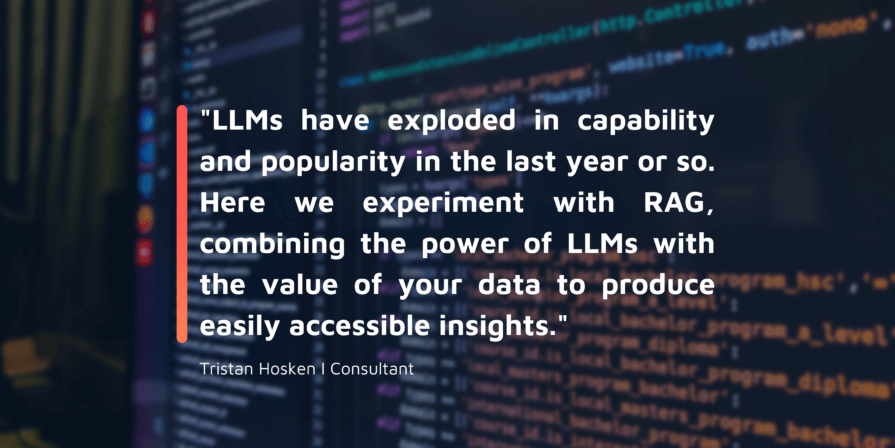
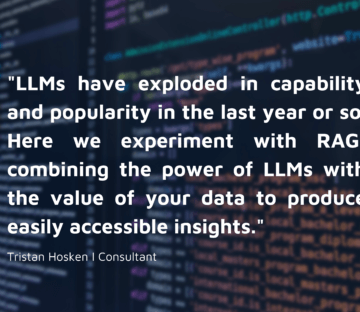
February 6, 2024 | AWS, Blog, OPA
Check out the latest blog by our Consultant, Tristan Hosken, as he explores Retrieval Augmented Generation (RAG). Tristan provides insights into advantages and disadvantages of RAG through hands-on experiments with AWS’s Bedrock and Azure’s OpenAI service.
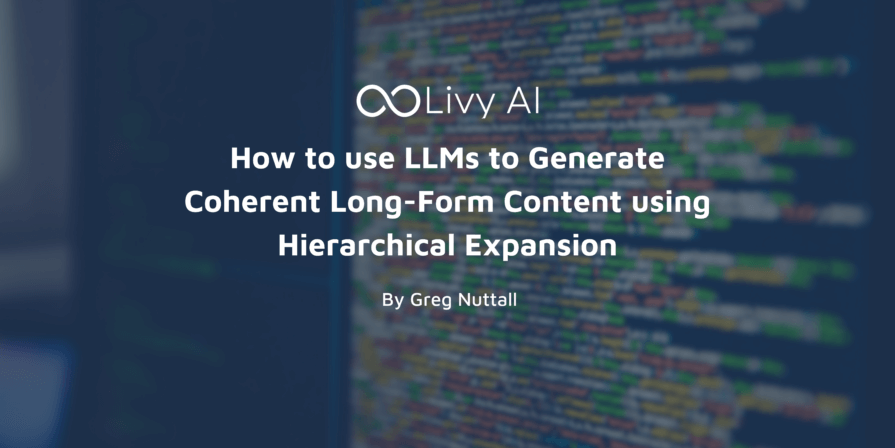
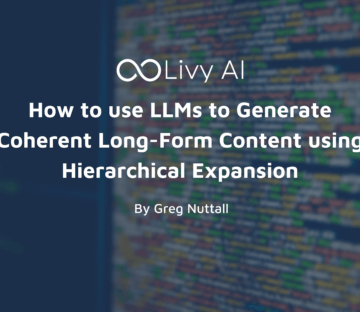
October 30, 2023 | Blog
As impressive as they are, Large Language Models (LLMs) face difficulties when creating long-form content, primarily due to token limitations and inconsistencies in the output over time.
Together with Livy.ai, we developed a “Hierarchical Expansion” method to address these challenges and better the quality, flow, and structure of the content produced. Read further to learn more!
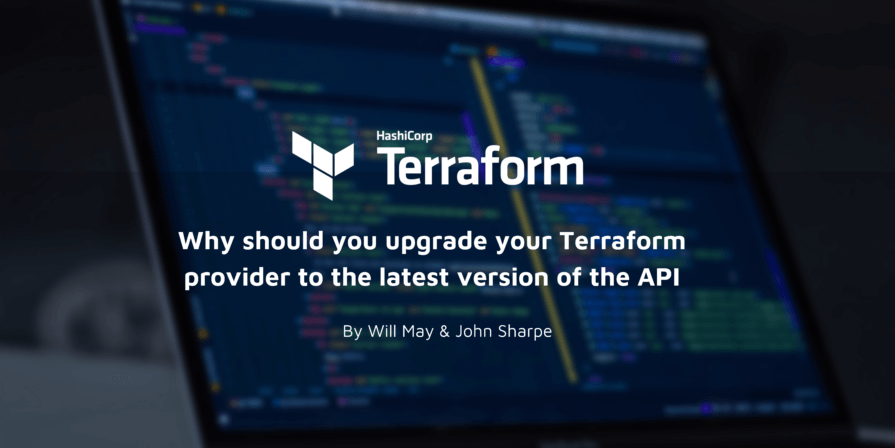
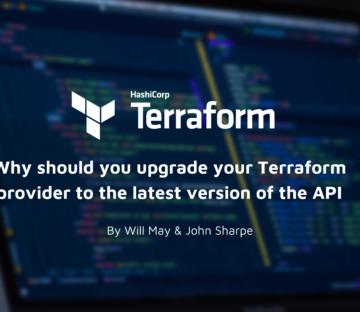
August 17, 2023 | Blog, Terraform Provider
Check out John Sharpe and Will May’s latest blog where they give suggestions for Terraform Provider authors who are thinking about upgrading from SDKv2 to Framework
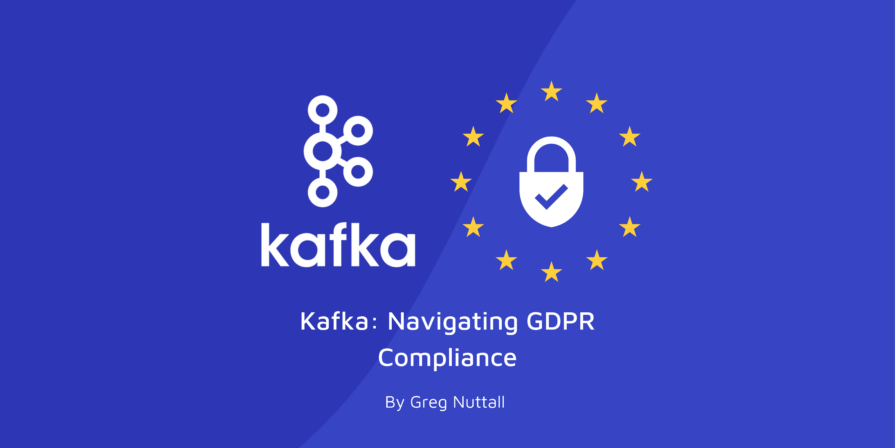
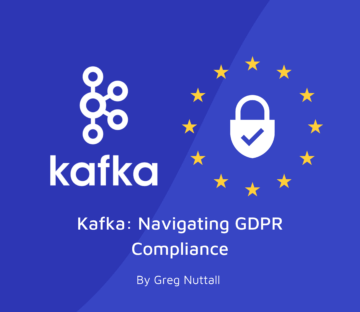
Check out Greg Nuttall’s latest blog where he looks at the challenges posed by GDPR’s “Right to be Forgotten” in the context of Apache Kafka, and delves deeper into three strategies for overcoming them.
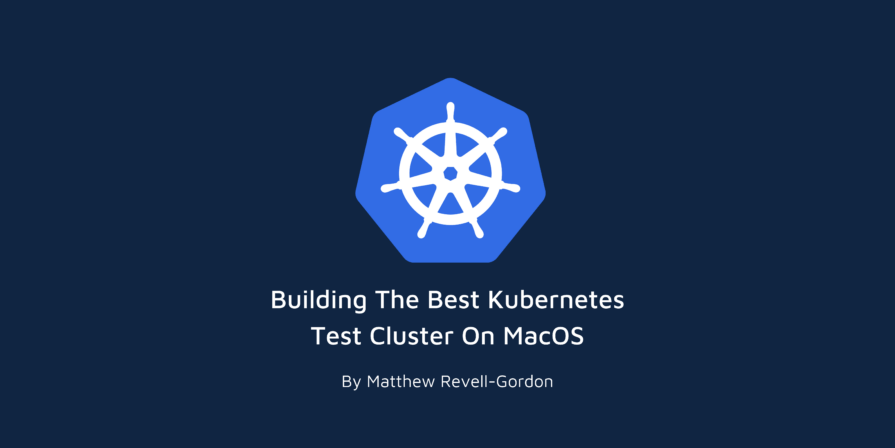
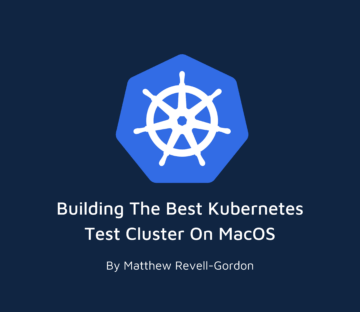
May 18, 2023 | Blog, Kubernetes
Check out Matthew Revell-Gordon’s latest blog as he explores building a local Kubernetes test cluster to better mimic cloud-based deployments, using Colima, Kind, and MetalLB.


December 7, 2022 | Blog, Data Analysis
Learn more about data processing and analytics, which are essential systems in modern enterprises but are frequently overlooked aspects of modern data architectures, by reading Mateus Pimenta’s latest blog.
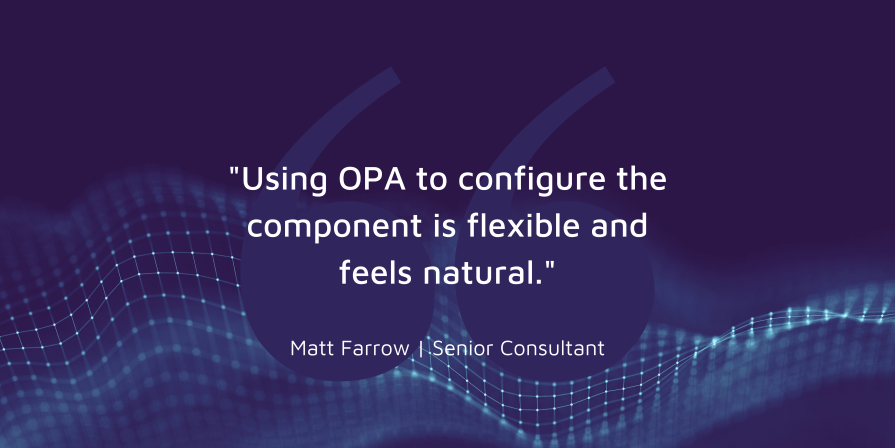
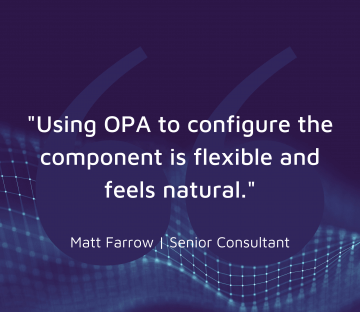
Read Matt Farrow’s blog as he explores the potential for using Open Policy Agent to filter and mask data being sent to and read from Apache Kafka.
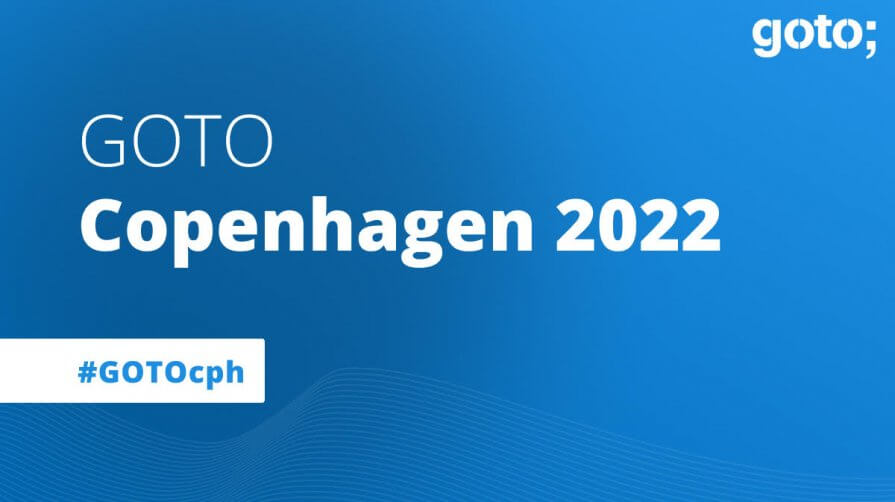

July 6, 2022 | Platform Engineering
Watch the recording of our CEO/CTO, Nicki Watt from the GOTO Copenhagen Conference 2022 on her talk ” From Data Mess —> Data Mesh: Navigating People, Process & Platforms”

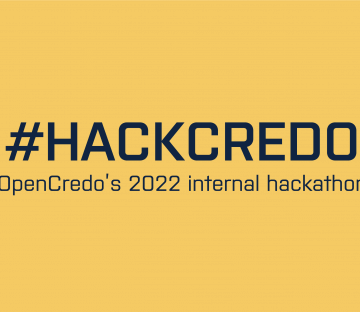
As we are passionate about using technology to solve problems, we are thrilled to share with you our internal competition, “HackCredo.” Read on to learn more about the competition, the groups, and the winners.


March 24, 2022 | Data Analysis, Data Engineering
In this Lunch & Learn session our Senior Consultant, Seb Margineanu shares an overview of the Databricks Lakehouse Platform by exploring the evolution of Databricks.


March 10, 2022 | Data Engineering, Open Source
In this lunch & learn session, Ebru Cucen and Alberto Faedda explore the historical background of GraphQL with case examples and a demo of how it can be used.


March 3, 2022 | AWS, Open Source, Software Consultancy
Watch our Lunch & Learn by Hieu Doan and Alberto Faedda as they share how engineers and security teams can secure their software development processes with the Secure Pipelines application.

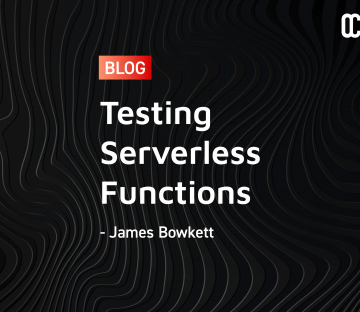
February 11, 2022 | AWS, Cloud, GCP, Kubernetes, Microservices, Open Source, Software Consultancy
Serverless functions are easy to install and upload, but we can’t ignore the basics. This article looks at different strategies related to testing serverless functions.


February 10, 2022 | Data Engineering
In this lunch & learn session, Fahran Wallace looks at how Apache Hop and its still active parent project Pentaho Data Integration help tackle data pipeline.


November 4, 2021 | Kubernetes
We always read that ‘security is everyone’s responsibility’. For any organisation, big or small, security should always be the primary concern—not a mere afterthought. In terms of Kubernetes, securing a cluster is challenging because it has so many moving parts and, apart from securing our Kubernetes environment, we also want to control what an end-user can do in our cluster.
To achieve these goals, we can start with the built-in features provided by Kubernetes like Role-Based Access Control (RBAC), Network Policies, Secrets Management, and Pod Security Policies (PSP). But we know these features are not enough. For example, we may want specific policies like ‘all pods must have specific labels’. And even if we have the policies in place, the next big question is how to enforce them on our Kubernetes cluster in an easy and repeatable manner.
In this blog post, we’ll address this challenge and other questions pertaining to OPA and how it can integrate into Kubernetes.
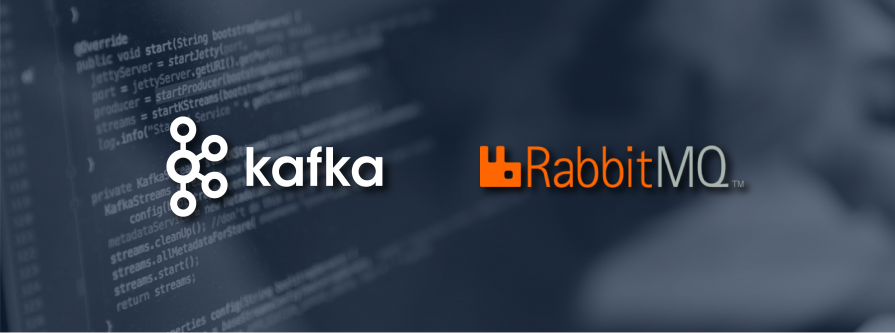
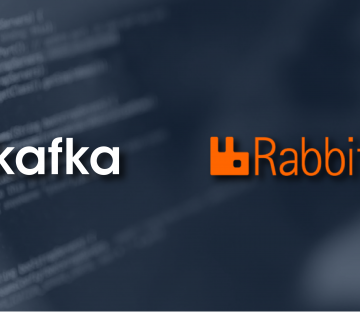
July 20, 2021 | Blog, Data Engineering, Kafka
Message and event-driven systems provide an array of benefits to organisations of all shapes and sizes. At their core, they help decouple producers and consumers so that each can work at their own pace without having to wait for the other – asynchronous processing at its best.
In fact, such systems enable a whole range of messaging patterns, offering varying levels of guarantees surrounding the processing and consumption options for clients. Take for example the publish/subscribe pattern, which enables one message to be broadcast and consumed by multiple consumers; or the competing consumer pattern, which enables a message to be processed once but with multiple concurrent consumers vying for the honour—essentially providing a way to distribute the load. The manner in which these patterns are actually realised however, depends a lot on the technology used, as each has its own approach and unique tradeoffs.
In this article we will explore how this all applies to RabbitMQ and Apache Kafka, and how these two technologies differ, specifically from a message consumer’s perspective.
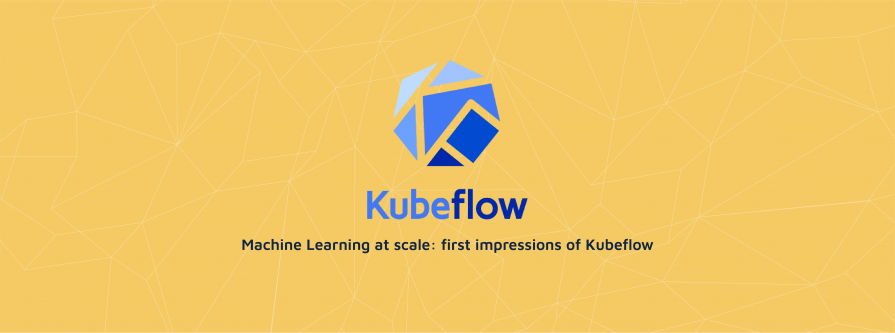
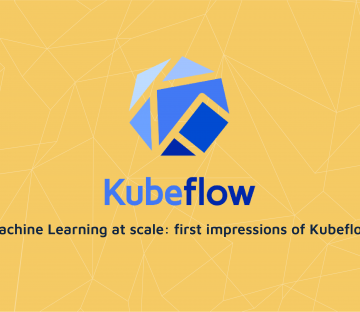
April 20, 2021 | Data Engineering, Machine Learning, Software Consultancy
Our recent client was a Fintech who had ambitions to build a Machine Learning platform for real-time decision making. The client had significant Kubernetes proficiency, ran on the cloud, and had a strong preference for using free, open-source software over cloud-native offerings that come with lock-in. Several components were spiked with success (feature preparation with Apache Beam and Seldon for model serving performed particularly strongly). Kubeflow was one of the next technologies on our list of spikes, showing significant promise at the research stage and seemingly a good match for our client’s priorities and skills.
That platform slipped down the client’s priority list before completing the research for Kubeflow, so I wanted to see how that project might have turned out. Would Kubeflow have made the cut?
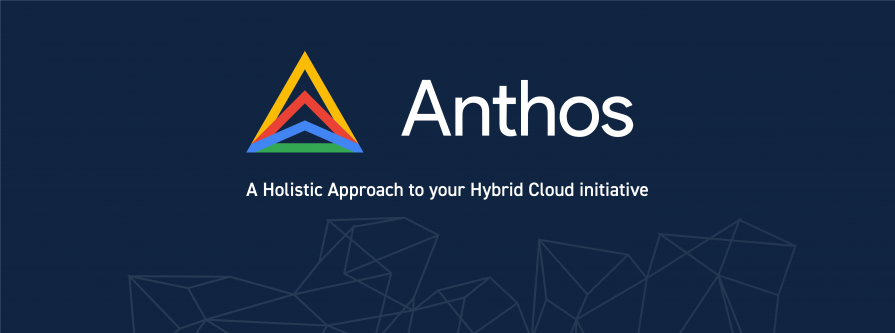
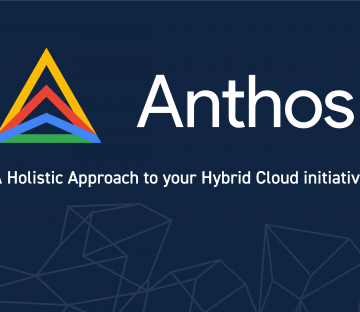
February 17, 2021 | Blog, Cloud, Cloud Native, GCP, Open Source
Multi-cloud is rapidly becoming the cloud strategy of choice for enterprises looking to modernise their applications.
And the reason is simple – it gives them much more flexibility to host their workloads and data where it suits them best.
In this post, we focus on Google’s application modernisation solution Google Anthos and the role it can play in your cloud transformation strategy.
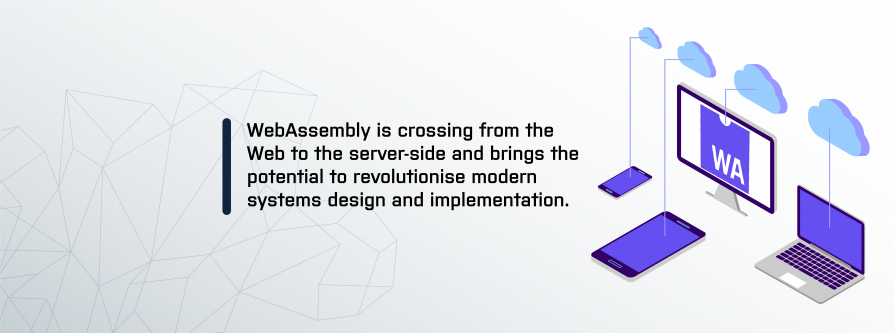
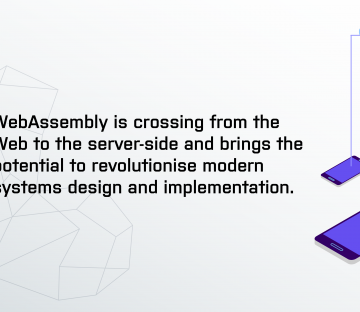
December 11, 2020 | Cloud, Cloud Native, Kubernetes, Microservices
“WebAssembly is a safe, portable, low-level code format designed for efficient execution and compact representation.” – W3C
In this blog, I’ll cover the different applications of Wasm and WASI, some of the projects that are making headway, and the implications for modern architectures and distributed systems.
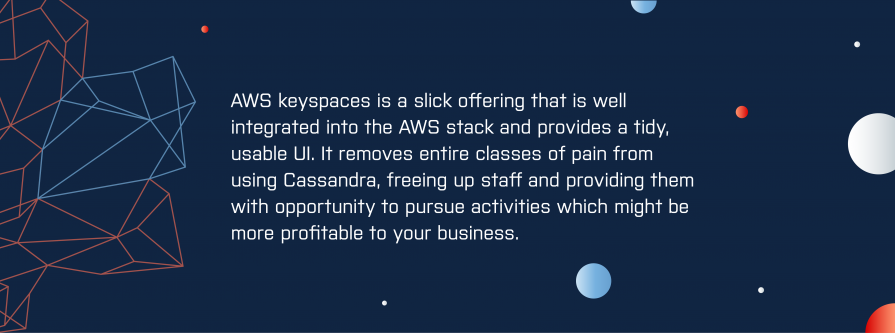
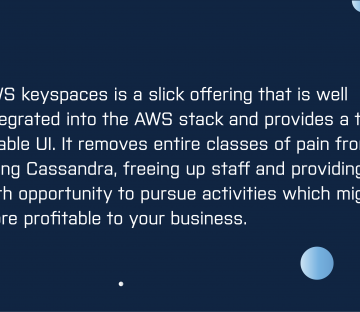
September 22, 2020 | AWS, Blog, Cassandra, Cloud, DevOps, Open Source
With the upcoming Cassandra 4.0 release, there is a lot to look forward to. Most excitingly, and following a refreshing realignment of the Open Source community around Cassandra, the next release promises to focus on fundamentals: stability, repair, observability, performance and scaling.
We must set this against the fact that Cassandra ranks pretty highly in the Stack Overflow most dreaded databases list and the reality that Cassandra is expensive to configure, operate and maintain. Finding people who have the prerequisite skills to do so is challenging.

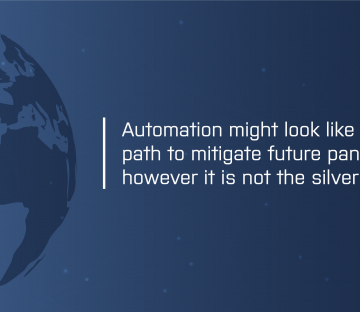
At the time of this post, the UK is making steps to exit from an unprecedented lockdown measures for the Coronavirus. Much of the UK workforce are still making efforts to work-from-home with mainly key workers operating – at risk – in public. Many industries have shut down completely. Consequently, many businesses are reflecting on what happens next and how do we better mitigate future pandemic events?


March 20, 2020
Traditionally, Usability and Security have been set in opposition to each other: with tight security, we end up with painful user experience. In this blog, Guy focuses on financial services as an exemplar of how we can introduce usability into a vertical with challenging security and compliance requirements.


October 8, 2019 | Cloud, Cloud Native, Culture
Following on from the last two blogs by Stuart (who shared highlights for day 1) and Trent (who shared highlights from day 2), I will conclude with mine on CloudNative London 2019 Day 3.
The Cloud Native landscape can be bewildering, and not only for newcomers. As a traveller on the Cloud-native journey, I have sometimes been overwhelmed by the number of products and projects. This is why I took hold of the opportunity to go to Day 3 of the Cloud Native London Conference last month hosted by Skills Matter.
Here are my top highlights from Day 3 of the CloudNative London 2019.


October 3, 2019
Continuing on from Stuart’s previous blog which covered highlights from CloudNative London conference day 1, I have put together a summary for day 2.
Being an OCer (OpenCredo employee) has given me the opportunity to fully embed myself in the London technology scene. Alongside our direct engagements with clients, it is a chance to understand and evaluate the trends and lessons that have emerged over the past year.
For conferences and technical content, London is a very crowded location. Every day it seems like a new conference is being announced and I know I cannot attend them all, no matter how much I want too! Alongside some of my other colleagues, I was given the option to attend the Skillsmatter CloudNative London conference and with the increase of organisations embracing the dynamic and transformative benefits offered by an ever-growing choice of cloud providers, it seemed like a good fit.


October 1, 2019 | Cloud, Cloud Native, Culture
One of the benefits we have working at OpenCredo (OC) is the opportunity to both attend and speak (although not on this occasion) at conferences. For some of you, this may be pretty common, but OC was actually the first to offer me this as part of a broader learning and development plan.
Cloud-native development and delivery is a core area of expertise for OC and we are always looking for what’s new and interesting in this space. So when I was offered the chance to go to CloudNative London it seemed like a good place to start. With its diversity in topics and technologies, the conference provided a perfect opportunity to collaborate and hear from others in the industry and what they are doing in this space.


September 12, 2019 | Cloud Native, Microservices, Software Consultancy
As a technology leader, you’ll be aware that competitive pressures and shifting business requirements are driving changes in the technical architectures of many organisations. This means you need a new strategic approach based on the ability to continually evolve elements of your systems and architectures.


August 14, 2019 | Culture, News
Here, in our little nook of the internet, we usually write about our experiences of emerging technologies, the tricky coding problems we’ve solved and how we have enhanced our clients’ businesses. We do this because we are very proud of this work. It truly matters.
Today is a little different. Today I’d like to share something a little more personal. Something that brings loneliness, kindness and technology together in an oxytocin-generating, slightly awkward embrace. Because hugs matter too.


Writing your own Kafka source connectors with Kafka Connect. In this blog, Rufus takes you on a code walk, through the Gold Verified Venafi Connector while pointing out the common pitfalls
Join us at CloudNative London this year! CloudNative London will be held on the 26th – 28th of September 2018 at Code Node and we are excited to announce that Nicki Watt will also be speaking at the conference on CloudNative Architecture.


May 16, 2018 | Microservices
To identify service boundaries, it is not enough to consider (business) domains only. Other forces like organisational communication structures, and – very important – time, strongly suggest that we should include several other criteria in our considerations.
We are excited to announce that our Lead Consultant, Pergerto Fernandez is presenting at Kafka Summit London 2018! Kafka Summit is the premier event for data architects, engineers, devops professionals, and developers who want to learn about streaming data.


February 14, 2018 | Cloud
AWS Announced a few new products for use with containers at RE:Invent 2017 and of particular interest to me was a new Elastic Container Service(ECS) Launch type, called Fargate
Prior to Fargate, when it came to creating a continuous delivery pipeline in AWS, the use of containers through ECS in its standard form, was the closest you could get to an always up, hands off, managed style of setup. Traditionally ECS has allowed you to create a configured pool of “worker” instances, with it then acting as a scheduler, provisioning containers on those instances.


February 6, 2018 | Cloud
Among the many announcements made at Re:Invent 2017 was the release of AWS Privatelink for Customer and Partner services. We believe that the opportunity signalled by this modest announcement may have an impact far broader than first impressions suggest.


January 23, 2018 | Data Engineering, DevOps
Machine Learning is a hot topic these days, as can be seen from search trends. It was the success of Deepmind and AlphaGo in 2016 that really brought machine learning to the attention of the wider community and the world at large.
We are excited to announce that Tareq Abedrabbo, Matt Long and Fahran Wallace are speaking at µCon London 2017! Join µCon 2017 to learn how other teams have adopted microservices and what they learned along the way.


October 24, 2017 | Data Engineering
Cockroach Labs, the creators of CockroachDB are coming to London for the first time since their 1.0 GA Release in May 2017. They will be taking time to talk about “The Hows & Whys of a Distributed SQL Database” at the Applied Data Engineering meetup, hosted and run by us here at OpenCredo.
We have been interested in CockroachDB for a while now, including publishing our initial impressions of the release on our blog. We thought this would be the perfect time to do a bit of a Q&A before the event! I posed Raphael Poss, a core Software Engineer at Cockroach Labs a few questions.
We’re back with our next event, this time reflecting on recent political events and how Data and Machine Learning can influence it.


August 9, 2017 | Cloud, DevOps, Terraform Provider
The recent 0.10.0 release of HashiCorp Terraform, saw a significant change to the way Providers are managed. Specifically, the single open source code repository for Terraform has been divided into core and multiple provider repositories.


August 8, 2017 | Cassandra
Recently, the sad news has emerged that Basho, which developed the Riak distributed database, has gone into receivership. This would appear to present a problem for those who have adopted the commercial version of the Riak database (Riak KV) supported by Basho.
This blog is written exclusively by the OpenCredo team. We do not accept external contributions.
Join us on the 25th of July at the London HashiCorp Meetup and hear from our CTO, Nicki Watt discuss evolving your infrastructure with Terraform!


July 11, 2017 | Cloud, Cloud Native
Over the years, OpenCredo’s projects have become increasingly tied to the public cloud. Our skills in delivering cloud infrastructure and cloud native applications have deepened and the range of cloud projects we are able to take on has grown. From enterprise cloud brokers to cloud platform migration in restricted compliance environments, our ability to deliver on the cloud is now a core component of our value proposition.


Join Daniel Bryant and Antonio Cobo at DevOpsCon 2017; The Conference for Continuous Delivery, Microservices, Docker, Clouds & Lean Business! DevOpsCon will be running from the 12th-15th of June, and offers you a glimpse at popular topics such as innovative infrastructure and modern lean business culture through hands-on workshops, sessions and keynotes.
We are excited to announce that our CTO, Nicki Watt will be speaking at HashiDays London 2017! Hashidays London is a one-day, single track, deeply technical Hashicorp event!
It’s all about Containers, Serverless and Reactive Programming right now! ProgSCon London 2017 will explore these trends through engaging talks delivered by leading industry experts. Several talks will also feature various aspect of Blockchain, Microservices and Big Data. If you are a software developer looking to sharpen your skills and learn from the best in the industry, then ProgSCon London 2017 is the place you need to be at!


April 25, 2017 | Cassandra, Data Analysis, Data Engineering
Apache Spark is a powerful open source processing engine which is fast becoming our technology of choice for data analytic projects here at OpenCredo. For many years now we have been helping our clients to practically implement and take advantage of various big data technologies including the like of Apache Cassandra amongst others.


April 13, 2017 | Terraform Provider
Recently I’ve been doing a lot with Terraform; having briefly flirted with it in the past, it’s only now with v0.8.x that I’ve been seriously stepping out with it (and Azure, since you asked). In the main I think it’s great, especially as it means I don’t have to yak-shave with the AWS and Azure CLIs. However, I have started to bang my head against some of Terraform’s limitations, specifically around HCL (Hashicorp Configuration Language) – used to define infrastructure in the Terraform .tf files.




March 23, 2017 | Cassandra, Data Analysis, Data Engineering
In recent years, Cassandra has become one of the most widely used NoSQL databases: many of our clients use Cassandra for a variety of different purposes. This is no accident as it is a great datastore with nice scalability and performance characteristics.
However, adopting Cassandra as a single, one size fits all database has several downsides. The partitioned/distributed data storage model makes it difficult (and often very inefficient) to do certain types of queries or data analytics that are much more straightforward in a relational database.


March 20, 2017 | DevOps
DevOps has swept the tech landscape. Now, many are discovering the benefits of programmable infrastructure. I have been lucky to work on many projects where we’ve taken advantage of tools such as Terraform, Ansible, or Chef.
Join Andrew Morgan and Daniel Bryant at OOP Conference 2017! By combining software and business, OOP Conference 2017 is the meeting point for people who work primarily in the enterprise environment. Technical experts (architects, developers, business analysts, and testers), technical (project) managers and leaders gain an excellent view on the state-of-the-art in modern software engineering. […]
Our Lead Consultant, Rafal Gancarz will be speaking at the Serverless London February Meetup. This month the meetup will be hosted by onefinestay and will kick off at 6:30pm. There will also be some great talks on Serverless by James Thomas from IBM and Dave Blooman from FundApps.
Our Chief Scientist, Daniel Bryant and Consultant Andrew Morgan will be heading to Munich for the Microservices Meetup on the 1st of Feb. The night will kick off at 6:30pm at Einstein Kultur with drinks and pizza, talks from Daniel and Andrew on microservices and effective testing will then follow from 7pm.


January 24, 2017 | Cloud
This blog aims to provide an end to end example of how you can automatically request, generate and install a free HTTPS/TLS/SSL certificate from Let’s Encrypt using Terraform. Let’s Encrypt is a free, automated, and open certificate authority (CA) aiming to make it super easy (and free – did I say free!) for people to obtain HTTPS (SSL/TLS) certificates for their websites and infrastructure. Under the hood, Let’s Encrypt implements and leverages an emerging protocol called ACME to make all this magic happen, and it is this ACME protocol that powers the Terraform provider we will be using. For more information on how Let’s Encrypt and the ACME protocol actually work, please see how Let’s Encrypt works.
Join Daniel Bryant and David Borsos at µCon 2016 on Monday the 7th and Tuesday the 8th of November at CodeNode in London. µCon 2016 is an opportunity to learn about emerging technologies and approaches, share challenges and evolve practices and ideas. Share the challenges you are facing, the technologies you are exploring and the skills […]
Join Rafal Gancarz at ServerlessConf London! Serverlessconf is a community led conference focused on sharing experiences building applications using serverless architectures. Serverless architectures enable developers to express their creativity and to focus on meeting user needs rather than spend time managing infrastructure and looking after servers. These architectures build on the work done in many […]
The London Mesos User Group is back for its monthly meetup on October the 20th! We are excited to announce that a couple of MesosCon EU speakers have kindly agreed to join us and would like thank GoCardless who are providing us with a venue and JFrog for very kindly supplying the beer and pizza. […]


October 13, 2016 | Data Analysis
In Lisp, you don’t just write your program down toward the language, you also build the language up toward your program. As you’re writing a program you may think “I wish Lisp had such-and-such an operator.” So you go and write it. Afterward you realize that using the new operator would simplify the design of another part of the program, and so on. Language and program evolve together…In the end your program will look as if the language had been designed for it. And when language and program fit one another well, you end up with code which is clear, small, and efficient – Paul Graham, Programming Bottom-Up
Join Brett Mack for October’s installment of the London Hashicorp Meetup! The London Hashicorp meetup is back on the 13th of October and will be held at the Holburn Sainsbury office with the usual beers and pizza on offer! Agenda: 6.30pm – Arrive, beers socialising 7pm – Talk 1 – Brett Mack, Consultant @ OpenCredo […]
Join Daniel Bryant and Andrew Morgan at Jax London 2016 this year on the 11th of October!


October 4, 2016 | Software Consultancy
As many of you know, OpenCredo are part of the global Trifork family, and as such have access to the combined knowledge and experience of many technology and business leaders throughout the group. Getting public access to all of this expertise and technical leadership can be tricky – until now. GOTO Accelerate is a one-day business focused conference that has emerged from the very successful GOTO technology events.
The London Mesos User Group is back – Join us on the 21st of September! London Mesos User Group is back after the summer break, taking place on the 21st of September. This time around, Cloudfare will be hosting the meetup at the office in London and will also be providing the beers and pizza! Agenda: […]
Join us at the first CTO’s in London Meetup on the 11th of August! We are pleased to announce that our Managing Director, Jean-Marie Ferdgeue and our Chief Scientist, Daniel Bryant will be presenting at the first CTO’s in London Meetup organised by OliverBernard. The meetup will be held at the Funding Circle offices, starting […]


July 8, 2016 | Microservices
OpenCredo recently co-organised the first Microservices Manchester event with OliverBernard recruitment, and it was a resounding success. Over 100 people showed up at the Victoria Warehouse near Manchester’s trendy Salford Quays for a day discussing the realities of implementing microservice systems.
OpenCredo is going North with Microservices Manchester! We are super excited to announce ourselves as Event Partners and organisers of Microservices Manchester. It will be held on the 5th of July 2016 and is a free single day two-track conference. Microservices Manchester is specifically designed for technical implementers and decision makers who wish to better understand […]


July 3, 2016 | DevOps
Several of us from the OpenCredo team were in attendance at the inaugural EU edition of the DevOps Enterprise Summit conference. We have been big fans of the two previous US versions, and have watched the video recordings of talks (2014, 2015) with keen interest as many of our DevOps transformation clients are very much operating in the ‘enterprise’ space.
Nick’s talk “Continuous delivery of secure cloud environments” looks at how taking advantage of cloud computing for development purposes, and even the running of production systems has become a de facto approach for many organisations nowadays.
Join us for Infracoders London on the 21st of June to hear talks from our Lead Consultant, Bart Spaans and Thoughtwork’s Cloud Specialist, Kief Morris!



June 3, 2016 | Software Consultancy
In this post, I’m going to take something extremely simple, unfold it into something disconcertingly complex, and then fold it back into something relatively simple again. The exercise isn’t entirely empty: in the process, we’ll derive a more powerful (because more generic) version of the extremely simple thing we started with. I’m describing the overall shape of the journey now, because programmers who don’t love complexity for its own sake often find the initial “unfolding” stage objectionable, and then have trouble regarding the eventual increase in fanciness as worth the struggle.


April 29, 2016 | Software Consultancy
In this post, I’ll demonstrate an alternative API which uses some of the advanced language features of the new Kotlin language from Jetbrains. As Kotlin is a JVM-based language, it interoperates seamlessly with Concursus’s Java 8 classes; however, it also offers powerful ways to extend their functionality.


April 5, 2016 | Software Consultancy
This post is part of a series which introduce key concepts in successful test automation. Each post contains sample code using the test-automation-quickstart project, a sample Java test automation framework available from Github.


April 2, 2016 | Terraform Provider
When it comes to automating the creation of infrastructure in cloud providers, Terraform (version at time of writing 0.6.14) has become one of my core go to tools in this space. It provides a fantastic declarative approach to describing the resources you want, and then takes care of making it so for you, keeping track of the state in either a local file or a remote store of some sort. Various bits of sensitive data is often provided as input to terraform.


March 2, 2016 | DevOps, Microservices
Many of our clients are currently implementing applications using a ‘microservice’-based architecture. Increasingly we are hearing from organisations that are part way through a migration to microservices, and they want our help with validating and improving their current solution. These ‘microservices checkup’ projects have revealed some interesting patterns, and because we have experience of working in a wide-range of industries (and also have ‘fresh eyes’ when looking at a project), we are often able to work alongside teams to make significant improvements and create a strategic roadmap for future improvements.


January 30, 2016 | Microservices
The OpenCredo team will be presenting two sessions on our recent learnings with implementing microservices at the OOP Conference, which will be running from the 1st – 5th February. We will also be running a booth, and so if you are interested in learning more about our recent projects, are keen to see if we can help you with your latest technical or organisational challenges, or want to join our team, then stop by and say hello!


January 26, 2016 | Data Engineering
In this second post about Hazelcast and Spring, I’m integrating Hazelcast and Spring-managed transaction for a specific use case: A transactional Queue. More specifically, I want to make the message polling, of my sample chat application, transactional.
Microservices, People and Business Reating and maintaining a Microservices architecture can’t be done in a vacuum. It requires buy in from many levels of an organisation which can be anything from changing development processes to enable modular delivery, enabling the larger deployment and monitoring setup needed. Other areas of the business outside the technical may also need, or […]


January 18, 2016 | Software Consultancy
Last time in this series I summarised all the Akka Persistence related improvements in Akka 2.4. Since then Akka 2.4.1 has been released with some additional bug fixes and improvements so perhaps now is a perfect time to pick up this mini-series and introduce some other new features included in Akka 2.4.x.


January 15, 2016 | Software Consultancy
So, you’ve started to hear a lot about React, the Javascript library developed by Facebook, but is it something you need to investigate? It’s time to distil the signal from the noise, position React amongst its rivals, and provide an indication of where it currently would – and would not – be a suitable fit.


January 8, 2016 | Microservices
Many of our clients are in the process of investigating or implementing ‘microservices’, and a popular question we often get asked is “what’s the most common mistake you see when moving towards a microservice architecture?”. We’ve seen plenty of good things with this architectural pattern, but we have also seen a few recurring issues and anti-patterns, which I’m keen to share here.


January 7, 2016 | DevOps, Software Consultancy
Good consulting is, by its nature, an act of collaboration. We recently helped a company with a variety of challenges – some architecture, some coding, some systems, some people, some process (normal consultancy challenges) – unique to this client. During the project, we formalised some things we had thought before, but which had never crystallised – all the work we did was transformative. Whether it’s a code review, process review, DevOps implementation, or outright transformation, the primary goal is the same – improving flow. Flow (sometimes known as throughput) is the movement of raw materials through a system to become finished goods. It’s analogy in the service industry is the movement of customer requirements through to usable solution. And we help improve it.


December 16, 2015 | Cloud, DevOps
In the rush to embrace DevOps, many organisations seek out tools to help them achieve DevOps nirvana; the magical tools that will unify Development and Operations, stop the infighting, and ensure collaboration. This search for tools to solve problems exists in many domains, but seems particularly prevalent in IT (it may be real, or a reflection of my exposure to IT). The temptation to embrace new tools as a panacea is high, because the problems in IT seem so pervasive and persistent.


The Conference for Software Architectures, with many outstanding sessions, tracks, and keynotes, covering the essentials of modern software development.
Join us at µCon 2015, the conference on Microservices, REST, dddesign & SOA. Network, share and learn with world leading architects and microservices experts.


November 25, 2015 | Microservices
In May a 1.0 release of RAML (RESTful API Markup Language) has been announced delivering a few much welcome additions in the RAML 1.0 specification. This major release marks an important milestone in the evolution of RAML and indicates the team behind the specification is confident this release delivers the comprehensive set of tools for developing RESTful APIs. I’ve been using RAML 0.8 for several months now and have enjoyed the simplicity and productivity it offers for designing and documenting APIs. I must say I’m quite pleased with the changes introduced in the new release and would like to review those I consider particularly useful.


November 24, 2015 | DevOps, Microservices
It was once again a privilege to present at the annual ‘muCon 2015‘ microservices conference held in London (at the shiny new Skillsmatter CodeNode venue). Based on feedback fro talks I gave earlier in the year, I presented a completely new version of my ‘The Business Behind Microservices‘ talk, which focuses on the organisational and people side of implementing a microservice-based application.


November 4, 2015 | Software Consultancy
Writing reusable roles for Ansible is not an easy task but one that’s worth doing. This post should walk you through the basics of writing reusable roles with dependencies backed by public and private git repositories.


November 3, 2015 | Software Consultancy
My JavaOne experience was rather busy this year, what with three talks presented in a single day! The first of these talks “Debugging Java Apps in Containers: No Heavy Welding Gear Required” was delivered with my regular co-presenter Steve Poole, from IBM, and we shared our combined experiences of working with Java and Docker over the past year.


October 31, 2015 | Microservices
Over the past few weeks I’ve been writing an OpenCredo blog series on the topic of “Building a Microservice Development Ecosystem”, but my JavaOne talk of the same title crept up on me before I managed to finish the remaining posts. I’m still planning to finish the full blog series, but in the meantime I thought it would be beneficial to share the video and slides associated with the talk, alongside some of my related thinking. I’ve been fortunate to work on several interesting microservice projects at OpenCredo, and we’re always keen to share our knowledge or offer advice, and so please do get in touch if we can help you or your organisation.


October 30, 2015 | Cloud, DevOps
In some companies, the inevitable rapidly became accepted as the way to do things, and both development and IT operations worked together to figure out how to collaborate on building systems that satisfied development’s desire for change, and operations desire for stability. Outsourcing infrastructure, and all it implied, gave rise to Devops – the unification of business needs, developer delivery, and operational capacity – but it also gave rise to something else, in companies where the operations teams weren’t quite as quick to move – Shadow IT.


October 18, 2015 | Cloud, DevOps
Last week Steve Poole and I were once again back at the always informative JAX London conference talking about DevOps and the Cloud. This presentation built upon our previous DevOps talk that was presented last year, and focused on the experiences that Steve and I had encountered over the last year (the slides for our 2014 “Moving to a DevOps” mode talk can be found on SlideShare, and the video on Parleys).


October 7, 2015 | Software Consultancy
It’s well known that predicting how long a project/task will take in IT is hard. In this post I’ll address one aspect of this (correlation) and ask what insights a data science perspective can give us about how correlations can make prediction difficult. I’ll explain the problems that correlation poses, give some practical advice for teams & project managers and investigate possible innovations to tooling that might improve matters.


October 1, 2015 | Data Engineering
Akka Streams, the new experimental module under Akka project has been finally released in July after some months of development and several milestone and RC versions. In this series I hope to gently introduce concepts from the library and demonstrate how it can be used to address real-life stream processing challenges.
Akka Streams is an implementation of the Reactive Streams specification on top of Akka toolkit that uses actor based concurrency model. Reactive Streams specification has been created by the number of companies interested in asynchronous, non-blocking, event based data processing that can span across system boundaries and technology stacks.


September 24, 2015 | Software Consultancy
You’ve implemented a change in how things work, and people aren’t happy. You spent time investigating the problem, and putting serious thought into what the issue was, and you’ve put a fix in place that you were sure people would be happy with. They aren’t. Why not?


September 24, 2015 | Microservices
Unless you’ve been living under a (COBOL-based) rock for the last few years, you will have no doubt heard of the emerging trend of microservices. This approach to developing ‘loosely coupled service-oriented architecture with bounded contexts’ has captured the hearts and minds of many developers. The promise of easier enforcement of good architectural and design principles, such as encapsulation and interface segregation, combined with the availability to experiment with different languages and platforms for each service, is a (developer) match made in heaven.
![Microservice Platforms: Some Assembly [Still] Required. Part Two](https://opencredo.com/wp-content/uploads/2018/10/banner-services-895x196.jpg)
![Microservice Platforms: Some Assembly [Still] Required. Part Two](https://opencredo.com/wp-content/uploads/2018/10/banner-services-360x312.jpg)
September 20, 2015 | Microservices
Over the past five years I have worked within several projects that used a ‘microservice’-based architecture, and one constant issue I have encountered is the absence of standardised patterns for local development and ‘off the shelf’ development tooling that support this. When working with monoliths we have become quite adept at streamlining the development, build, test and deploy cycles. Development tooling to help with these processes is also readily available (and often integrated with our IDEs). For example, many platforms provide ‘hot reloading’ for viewing the effects of code changes in near-real time, automated execution of tests, regular local feedback from continuous integration servers, and tooling to enable the creation of a local environment that mimics the production stack.


September 18, 2015 | Microservices
We’re pleased to begin our series of OpenCredo webinars with “The Business Behind Microservices”, which takes a look at the some of the business and organisational challenges that come along with the decision to implement microservices.


September 13, 2015 | DevOps
Last week I was privileged to be able to present my “Thinking Fast and Slow with Software Development” talk at the inaugural Software Circus conference in Amsterdam. The conference was amazing, and I’ll write more about this later, but in this post I was keen to share the presentation slides and the thinking behind this talk…
Imagine half way between a software conference and a music festival and you’re going in the right direction. Think amazing speakers, circus tents, BBQs, live music and craft beers at the spectacular location ‘Roest’ in the center of Amsterdam!
![Microservice Platforms: Some Assembly [Still] Required. Part One](https://opencredo.com/wp-content/uploads/2018/10/banner-vanancies-895x196.jpg)
![Microservice Platforms: Some Assembly [Still] Required. Part One](https://opencredo.com/wp-content/uploads/2018/10/banner-vanancies-360x312.jpg)
August 26, 2015 | Cloud
Unless you’ve been living under a rock for the last year, you’ll undoubtedly know that microservices are the new hotness. An emerging trend that I’ve observed is that the people who are actually using microservices in production tend to be the larger well-funded companies, such as Netflix, Gilt, Yelp, Hailo etc., and each organisation has their own way of developing, building and deploying.


August 18, 2015 | Software Consultancy
In this post, the last in the New Tricks With Dynamic Proxies series (see part 1 and part 2), I’m going to look at using dynamic proxies to create bean-like value objects to represent records. The basic idea here is to have some untyped storage for a collection of property values, such as an array of Objects, and a typed wrapper around that storage which provides a convenient and type-safe access mechanism. A dynamic proxy is used to convert calls on getter and setter methods in the wrapper interface into calls which read and write values in the store.


August 11, 2015 | DevOps
For years, OpenCredo has been working with organisations to help them introduce new technologies, and more effective development practices, to their IT teams. This has met with a great deal of success, and we have worked with a variety of companies of various sizes. During these projects, we have consistently noticed that the changes we make reach beyond IT in their impact and effects.


August 10, 2015 | Cloud, Software Consultancy
As a company, we at OpenCredo are heavily involved in automation and devOps based work, with a keen focus on making this a seamless experience, especially in cloud based environments. We are currently working within HMRC, a UK government department to help make this a reality as part of a broader cloud broker ecosystem project. In this blog post, I look to provide some initial insight into some of the tools and techniques employed to achieve this for one particular use case namely:
With pretty much zero human intervention, bar initiating a process and providing some inputs, a development team from any location, should be able to run “something”, which, in the end, results in an isolated, secure set of fully configured VM’s being provisioned within a cloud provider (or providers) of choice.


August 5, 2015 | Cloud, GCP, Kubernetes
Why OpenCredo partnered with Google
Recently OpenCredo chose to partner with Google in order to share knowledge and resources around the Google Cloud Platform offerings. Our clients come in many shapes and sizes, but typically all of them realise three disruptive truths of the modern IT industry: the (economic) value of cloud; the competitive advantage of continuous delivery; and the potential of hypothesis and data-driven product development to increase innovation (as popularised by the Lean Startup / Lean Enterprise motto of ‘build, measure, learn’).
July 28, 2015 | Microservices
Recently I co-presented a talk at Goto Amsterdam on lessons learnt whilst developing with a Microservices architecture; one being the importance of defining and documenting your API contracts as early as possible in the development cycle. During the talk I mentioned a few API documentation tools that I’d used and, based on feedback and questions from attendees, I realised that this topic merited a blog post. So, the purpose of this is to introduce 5 tools which help with designing, testing and documenting APIs.


July 13, 2015 | Software Consultancy
Why Use Dynamic Proxies?
Dynamic proxies have been a feature of Java since version 1.3. They were widely used in J2EE for remoting. Given an abstract interface, and a concrete implementation of that interface, a call to some method on the interface can be made “remote” (i.e. cross-JVM) by creating two additional classes. The first, a “marshalling” implementation of the interface, captures the details of the call in the source JVM and serializes them over the network. The second, an “unmarshalling” endpoint, receives the serialized call details and dispatches the call to an instance of the concrete class on the target JVM.


February 16, 2015 | Software Consultancy
Apache Mesos is often explained as being a kernel for the data-centre; meaning that cluster resources (CPU, RAM, …) are tracked and offered to “user space” programs (i.e. frameworks) to do computations on the cluster.




November 21, 2014 | White Paper
In our latest white paper we cover the high level fundamentals of test automation, discuss the primary problems test automation solves and take a look at the steps required to implement this within your development process – all aimed at improving software delivery.
November 19, 2014 | Microservices
Undeniably, there is a growing interest in microservices as we see more organisations, big and small, evaluating and implementing this emerging approach. Despite its apparent novelty, most concepts and principles underpinning microservices are not exactly new – they are simply proven and commonsense software development practices that now need to be applied holistically and at a wider scale, rather than at the scale of a single program or machine. These principles include separation of concerns, loose coupling, scalability and fault-tolerance.


February 17, 2014 | Cassandra
In our previous posts we gave an overview of Cassandra’s new compare-and-set (lightweight transaction) commands and a more detailed look into the API for using them when inserting new rows into the database.
In this third post, we are going to cover update statements. We recommend reading the previous posts, as there are some details which are the same for inserts and updates which are not repeated here.




July 4, 2013 | Software Consultancy
In which situations Spring Data Hadoop (SDH) can add value, and in which situations would it be a poor choice? This article follows on from an objective summary of the features of SDH.


February 25, 2013 | Neo4j
As part of our work, we often help our customers choose the right datastore for a project. There are usually a number of considerations involved in that process, such as performance, scalability, the expected size of the data set, and the suitability of the data model to the problem at hand.
This blog post is about my experience with graph database technologies, specifically Neo4j. I would like to share some thoughts on when Neo4j is a good fit but also what challenges Neo4j faces now and in the near future.










March 21, 2012 | Software Consultancy
Event processing Language (EPL) enables us to write complex queries to get the most out of our event stream in real time, using SQL-like syntax.
EPL allows us to use full power of aggregation of the high volume event stream to get required results with the minimal latency. In this blog we are going to explore some aspects of numerical aggregation of data with high precision BigDecimal values. We will also demonstrate how you can add you own aggregation function to Esper engine and use them in EPL statements.


February 15, 2012 | Cloud
As part of a recent project, I have been working on a number of Scala/Lift applications that we are hosting on a private Cloud Foundry instance.
In this blog post I would like to talk about some practical aspects of developing and deploying Lift applications to Cloud Foundry.
Out of the box, Cloud Foundry is able to run simple Lift applications smoothly. Things however become more interesting if your application needs to talk to one of the available services on Cloud Foundry, such as a relational or a NoSql store.


February 13, 2012 | Software Consultancy
Recently we were approached by a client to do some performance testing of the web application they had written. The budget allowed two days for this task. Ok. No problem. Yes, we can. Naturally I had one or another question though…


News | November 24, 2010
